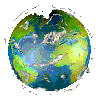 GEO 260
GEO 260
Third World Development
GEO 260 · Syllabus · Research Paper Guide · Databases · Links · Novels · Glossaries · Maps
RESEARCH PAPER GUIDELINES
An important part of the Third World course is the research paper requirement. The paper is designed to aid you in learning more about Third World development and the research process. It is also aimed at improving your writing and investigative skills.
As suggested in the syllabus the research paper must focus on a critical developing world problem. While the problem should be applicable to one or more Third World nations, the paper should not be an exercise in profiling those particular nations. Rather the thrust of the paper should, address the following questions:
Having mentioned these critical points, it is also possible to look at development progress in a particular region of a state (i.e. nation) as the dominant theme in the paper. Here emphasis should be placed on an analysis of progress toward development (i.e. what progress has been made, what are the major obstacles, etc). The analysis may take on an historical and/or contemporary perspective.
Alternatively, you may choose to focus on a particular aspect of development within a country. You should explain why this problem is especially critical and then proceed to analyze the background, nature of the problem, its causes, implications, barriers to solution and possible strategies designed to cope with the problem. Especially useful and appropriate would be to show how location, situational or regional-spatial differences contribute to the development dilemma.
This paper should not be an encyclopedia listing of a country’s political system, population, industry and resources.
You should begin to think about a potential topic very early, gather background information and subsequently more specific data, information and "evidence" should be gleaned from specialized encyclopedias, monographs, journals and newspapers.
OBVIOUSLY, THE INTERNET IS AN IMPORTANT TOOL AND SOURCE AND MEANS OF DELIVERING INFORMATION. USE IT!!
The paper should begin with a short introduction which provides the background for the topic and should be followed by A SPECIFIC STATEMENT OF THE PROBLEM AND/OR QUESTIONS you intend to research and answer.
This should be followed by the analysis (your presentation of your inquiry and discussion of the questions and/or problems. Finally you should attempt to SUMMARIZE BRIEFLY the major points and draw some INSIGHTFUL CONCLUSIONS.
The paper should be referenced with a full bibliography. Each book reference should provide the author or editor's name (surname first), title of the work, place of publication, publisher, and date. An example: Black, Richard. Refugees, Environment and Development. London: Longman Publishers, 1998.
Or for a journal article: Peter Davis, "Geography and Third World Development", Development Studies, Vol.23 (1979), pp.47-68.
The following method is suggested for referencing materials or ideas IN THE BODY OF YOUR PAPER and which you have found in either books, journals, etc: (Author's last name, date, page number). The complete citation along with page numbers should be detailed in the list of references at the end of the paper. Maps and tables are VERY appropriate but should be used purposefully not simply as "added weight".
The paper should be approximately eight (8) to ten (10) pages in length EXCLUSIVE of references, maps, and tables. Above all the paper must focus on the explanation and critical analysis of a specific development problem or development condition. Do attempt to first ask a series of questions regarding your potential topic and feel free to discuss this with the instructor. Do not simply plunge ahead and describe a country's characteristics or problems. How did the problems arise and how can they be corrected?
SAMPLE TOPICS
In order to illustrate the nature of acceptable topics the following are provided as brief examples.
MOST IMPORTANT: ALL STUDENTS ARE STRONGLY URGED TO VISIT WITH THE INSTRUCTOR DURING REGULAR OFFICE HOURS TO DISCUSS AND GAIN APPROVAL OF A RESEARCH PAPER TOPIC. THIS DISCUSSION SHOULD BE HELD BY FEBRUARY 20, 2004 THE EARLIER THE BETTER. THE PAPER WILL BE DUE TUESDAY, APRIL 27. PAPERS WHICH ARE TURNED IN LATE WILL BE DOWNGRADED.
RESEARCH TOOLS:
Become acquainted with the UK Libraries web site (a brief demo will be provided in class) . Note that First Search, InfoTrac, and World Cat are major data bases which provide information. Also MANY journals are available on-line, i.e. electronically. The Far Eastern Economic Review (http://feer.com/) and Asia Week (http://www.asiaweek.com/) are two important weeklies that provide current information on Asia and the Pacific.
Note all books on reserve for this course are excellent resources for ideas and information.
See also the web sites for: The Economist (http://economist.com/), The World Bank (http://www.worldbank.org/), United Nations (http://www.un.org/) and a variety of newspapers especially the New York Times (http://www.nytimes.com/), and the Washington Post (http://www.washingtonpost.com/) which are excellent sources for current developments in the Third World.
Of the major Internet search engines, Google is primary. Another, fairly new search engine is Vivisimo.
George Kurian(ed.). Encyclopedia of the Third World. 3 vols. New York: Facts on File,.(Ref HC59.7.K87)
The Europa Yearbook : A World Survey. 2 vols. London:Europa. (Ref JN1 .E85 1998)
Africa South of the Sahara. latest edition, London: Europa (RefDS1.F3),
Far East and Australasia. latest ed., London: Europa. (Ref DT351 .A3)
Simon Collier,et.al. The Cambridge Encyclopedia of Latin America and the Caribbean. Cambridge University Press.
South: A Journal of the Third World, London. Excellent monthly journal focusing on all of the developing regions; often has useful data sets.
World Bank Development Reports, Oxford University Press, Yearly (since 1980) reports on the state of development across the LDCs.
 GEO 260
GEO 260
Third World Development
GEO 260 · Syllabus · Research Paper Guide · Databases · Links · Novels · Glossaries · Maps